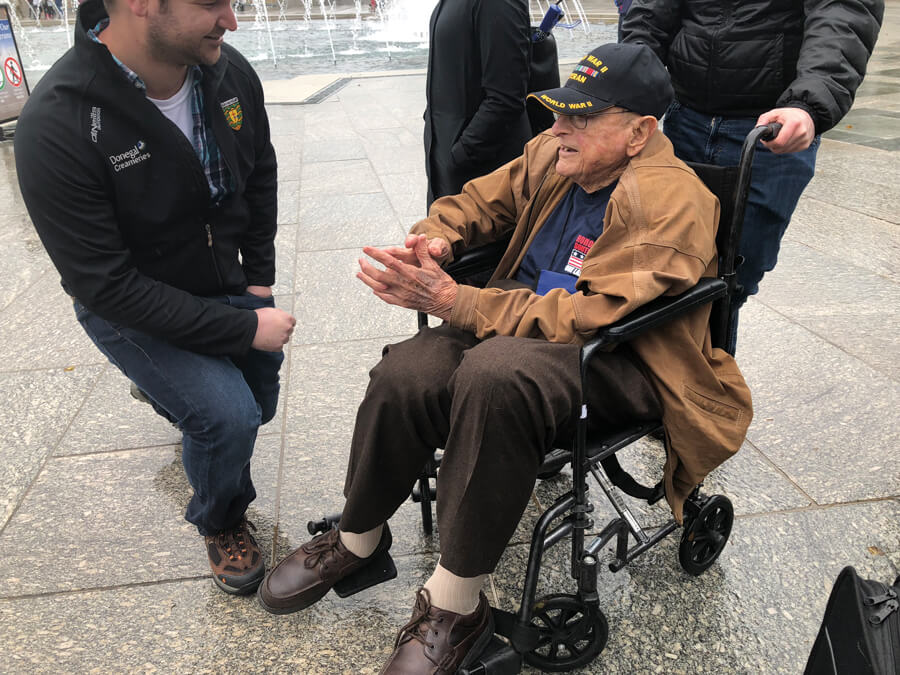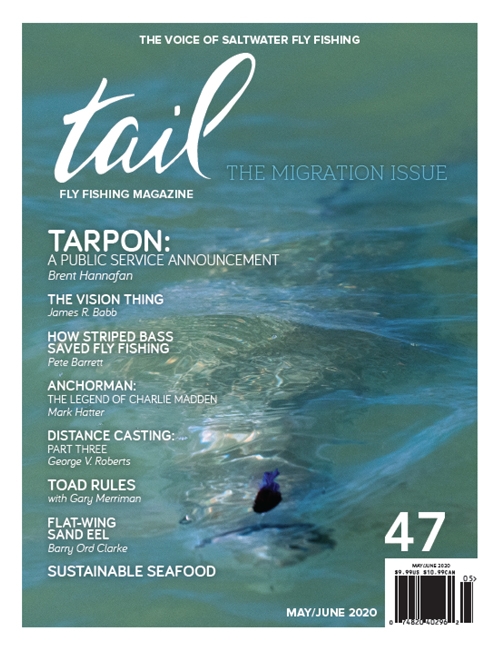Fishing was a common language in my family and connected us like nothing else did. My brother is a maniac about the sport—his wife, Maria, too—and, it is telling that on the day he was born my father went fishing and caught a bonefish.
It’s part of family lore that when I was three years old I’d go out in a skiff with my father, who’d tie the first fish caught on my line, which would keep me busy for the day. I grew up in Miami Beach, and the backyard of our house bordered on Biscayne Bay. It was easy enough to drop a line in the water after school–and most days I did. Back then, several decades before I learned the art of presenting the ruse of a fly to a fish, shrimp was my bait of choice. My father, a public relations consultant (with the flamboyance typically associated with that profession), once pitched a story to the fishing editor of the Miami Herald, spinning me as a kind of rod-and-reel child prodigy. The editor rose to the bait. I still have the clip: yellow and brittle as a dried leaf. “My favorite fish is a grunch (a grunt),” I told my interviewer. “And,” I added with precocious certainty (I was six), “when I grow up I want to be a ickyologist (ichthyologist).”
Fishing was a common language in my family and connected us like nothing else did. My brother is a maniac about the sport—his wife, Maria, too—and, it is telling that on the day he was born my father went fishing and caught a bonefish. When I was growing up, my father would trade in his fishing boat for a larger one at regular intervals before advancing age put an end to boat ownership. Although I left Miami more than 30 years ago to write for National Geographic in Washington, D.C., where a feeding frenzy has more to do with a school of snapping journalists on the trail of a story than it does a bait ball, I could always count on a deep-sea fishing expedition on trips home for the holidays. We typically drove down to Islamorada in the Florida Keys and trolled for sailfish and dolphin in the Gulf Stream, or dropped a line in shallower water for grouper and yellowtail.
My family, like most, harbors frictions, (some longstanding, others newly minted) that simmer and occasionally erupt, but fishing remained safe territory where abrasions could heal in the mind-clearing astringency of salt air. Years ago, on assignment, I interviewed John Maclean, whose father, Norman, wrote A River Runs Through It, a shadowed story ostensibly about fishing but really about family. As we sat in his Montana cabin, I asked about the role of fishing in his family. Fishing, Maclean explained, had a spiritual dimension and held together a family that communicated in disastrous ways. His father, he said, talked about going to the river because he could say things there he couldn’t say anywhere else.
La vida es un fandango y aquel que no baila es un tonto, my father used to say. Life is a fandango (he’d in fact named one of his boats Fandango) and he who doesn’t dance is a fool. So he lived large and danced fiercely, something not without occasional cost to the rest of us. Perhaps that ferocity to live large came from his having survived World War II. He’d flown missions over Germany as a navigator-bombardier on a B-17, and not everyone who flew off returned.
I knew my father was getting old when he stopped fishing. Two knee replacements, a cracked cervical vertebrae requiring a titanium rod to stabilize it, and age—gravity takes its toll on us all, after all—had compromised his balance. There was no way he could keep his footing on a boat, particularly one tossed about in the Atlantic. Inevitably, he was consigned to a walker, a sentence he met with great resentment. Despite the risk, he longed for one last fishing trip in the Gulf Stream, but it never happened–at least not in the way he’d hoped for.
Years before my father’s deep-water days were curtailed by the rude jolt of age, I had asked John Maclean to talk about his last fishing trip with his father. “When we returned from our last fishing trip, my father sat down,” Maclean told me. “He was tired. I asked if I could get something—anything–for him. ‘A drink,’ he said. I fixed it, but it didn’t taste good to him, and I knew he was near the end. He was like an old fisherman who has a big one he knows he’ll never land.”
Recently, my father reached his own end and died. He was 96, and he directed that his ashes be dispersed in the Gulf Stream, where we had fished over so many years. The ocean off Islamorada was choppy that day. A stiff breeze snapped the lines on the outriggers of the Catch 22, a 54-foot sport-fishing boat owned by Richard Stanczyk, a family friend who took us out for the ceremony. We scattered his ashes into the ocean, and as they unfurled into plumes of gray that disappeared into blue, the head of a big loggerhead turtle popped up from the waves. I swear it winked.
Of course we went fishing afterwards—it was, you might say, my father’s last fishing trip—and in a fitting coda, my nephew, his youngest grandson, caught his first sailfish.
My father would have liked that.
Cathy Newman spent 20 years as a journalist for National Geographic Magazine and was very kind to share her father’s story with Tail Fly Fishing Magazine.
.



